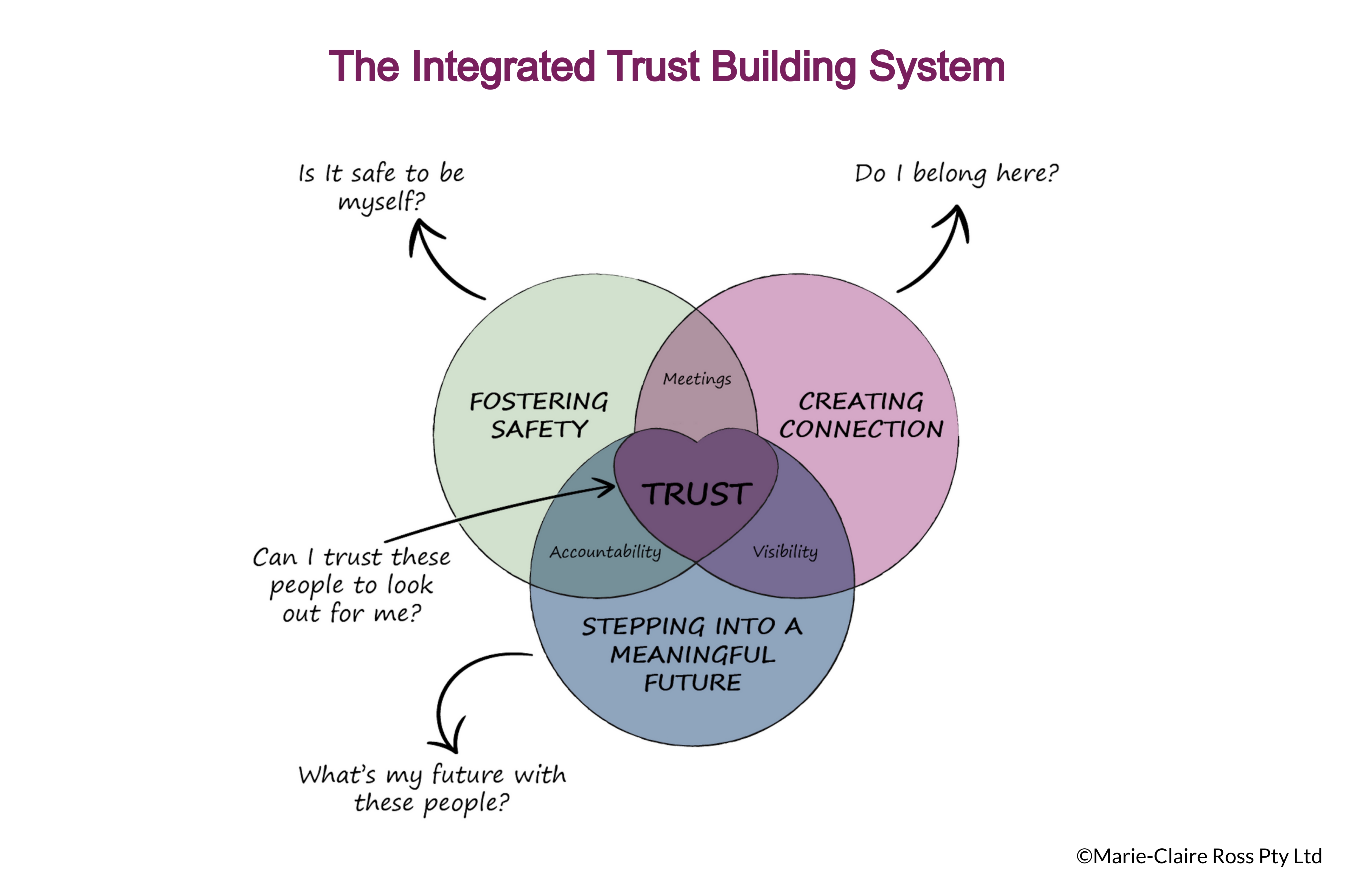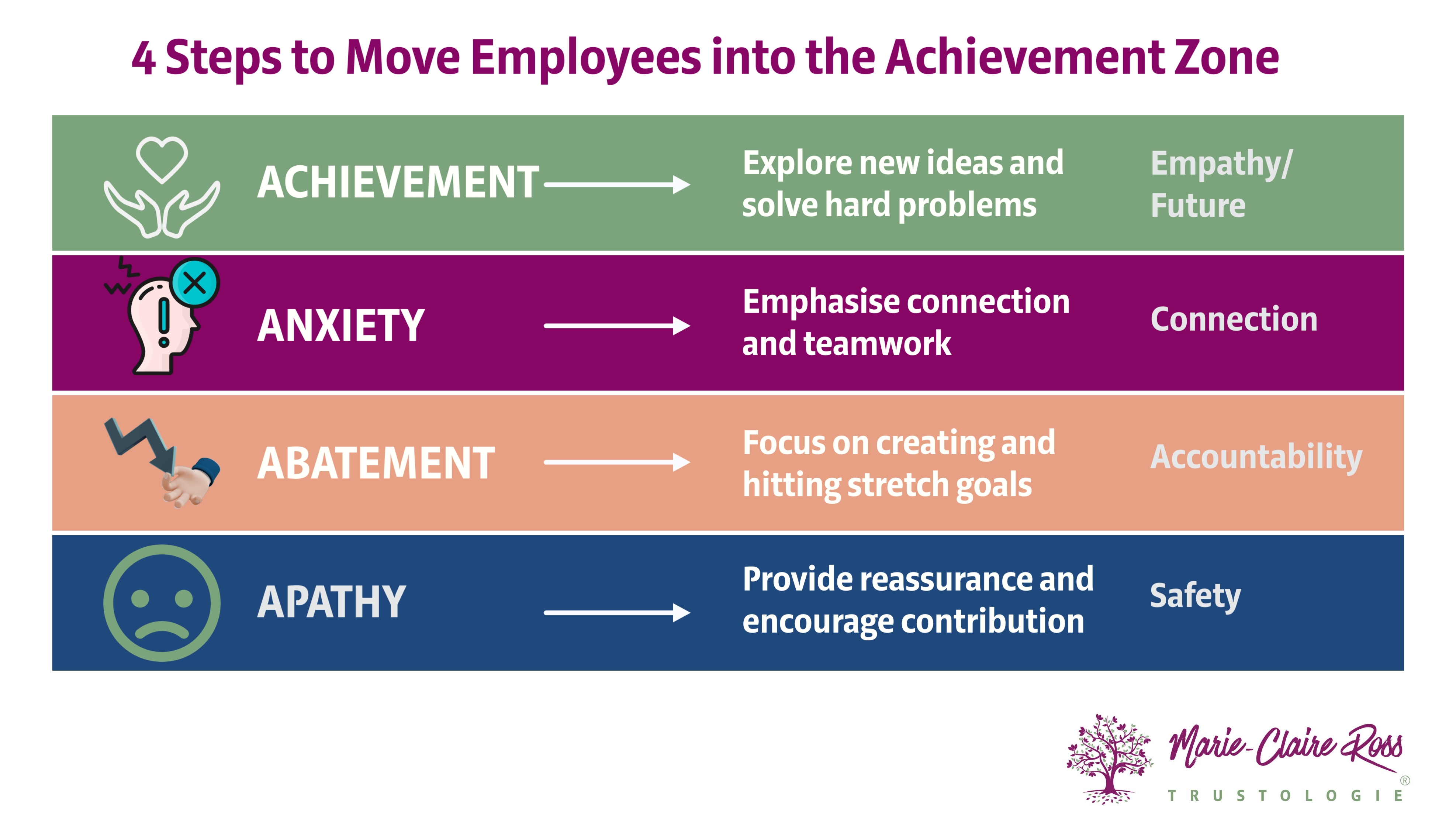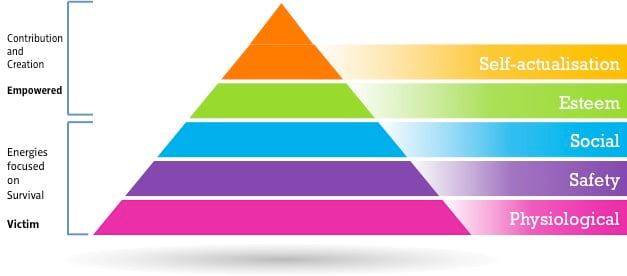11 min read
4 Practical Strategies for Better Emotional Management in the Workplace
I have a friend who often finds herself at the mercy of her emotions. Recently, she called me to rehash a confrontation she’d had with a group of...
Develop leaders, strengthen executive teams and gain deep insights with assessments designed to accelerate trust and performance.

Transform how your leaders think and perform with keynotes that spark connection, trust and high-performance cultures.

Explore practical tools, thought-leadership and resources to help you build trusted, high-performing teams.

Trustologie® is a leadership development consultancy founded by Marie-Claire Ross, specialising in helping executives and managers build high-trust, high-performing teams.

Unlock the potential of your Gen Z employees with these essential management strategies.
Gen Z, born between 1997 and 2012, is the first generation to grow up with the internet and digital technology as a constant presence. It means they have a shorter attention span than other generations as they absorb a continuous flow of content from an array of digital sources. Influencing their communication methods, learning preferences, work habits, and workplace expectations.
Trust in the workplace is crucial for Gen Z employees. While they love to receive feedback, they need to trust that the feedback they are being given is in their best interests. Otherwise, they will tend to feel that any negative feedback means they will be fired.
Out of all the generations Gen Z is the most disengaged at work which has only decreased since the pandemic.
Managers who know how to build trust with Gen Z are more likely to create a more engaging and effective work environment with a lower attrition rate.
Let's take a look at how the Integrated Trust Building System helps managers build trust with Gen Z employees. This model is taken from the book Trusted to Thrive: How leaders create connected and accountable teams (get a free chapter here).

The Integrated Trust Building System helps leaders to focus on the three most important practices to emotionally engage employees, so that the limbic brain trusts the situation. This then calls for three interactions or solutions.
These are:
According to a study by Kahoot, nine out of 10 Gen Z employees have experienced social discomfort at work. With 35% of those feeling it on a near-daily basis.
Establishing a non-judgmental and secure work environment can reduce social anxiety among Gen Z employees, with 53% considering it a "significant motivator for active participation," as per the report.
Solution: Meetings and one-on-ones. Managers need to work closely with their Gen Z reports to build close relationships. Both Millennials and Gen Z have been raised in societies that increasingly acknowledge the significance of mental health and consider therapy a standard aspect of life.
Best practice is to do regular one-on-ones where you encourage Gen Z reports to talk about their emotional state, their career aspirations and how to help them reach their potential. They are more engaged when they feel you care about their emotional well-being and career development.
Gen Z employees really enjoy one-on-one meetings. These sessions provide them with the opportunity to demonstrate their contributions and highlight how they are adding value to the team.
Young employees are still determining how their career paths might develop, so share what you are working on. Work is exciting and a new terrain for them. Leverage that excitement by discussing your schedule, the challenges you encounter, and your strategies for overcoming them. This will inspire them to view their work from a more advanced standpoint and allow them to imagine what life may be like for them one day.
When people feel like they don’t belong, it creates self-doubt and fear. People need to feel a sense of connection with the group to increase their ability to succeed in their role.
Gen Z are keen to learn how their work helps others. Increase their engagement by showing them the meaning behind the work they do. Make sure you share the big vision, the purpose of the organisation and how their work helps make other people's lives easier. This could be customers, other teams, team members or even you.
Solution: Visibility is a key tenet of transparency and includes visibility of information, priorities and progress both within and across teams, and in leadership behaviours.
Make sure you give regular, timely constructive feedback on the job (and this is not during one-on-ones). Effective mentorship means explicitly communicating what they are doing well and what needs improvement (with specific actions). This is important for remote workers who can often feel disadvantaged by not being able to see what you do.
When people don’t know what’s going to happen next and the situation feels unsafe, they will push back from committing to goals. The way to avoid this is to involve people in a meaningful future through clearly articulating the company vision and people’s career pathway. This pulls people into engagement and out of the low performance zone in the brain.
From my perspective, Gen Z is eager to learn, demonstrate their skills, and achieve their potential. If this enthusiasm is overlooked, it can lead to discouragement, making it difficult to maintain motivation and deliver high-quality work.
Solution: Accountability. Make sure Gen Z are clear on your expectations, what good looks like and give them the autonomy to get work done their way (as long as it meets expectations). Give them goals and KPIs and encourage them to share their progress and ask for support. Provide them with a learning capability matrix that show their progress with the skills required for the job. Gen Z want to know what they don't know, so they can figure out how to get the skills required for future jobs. This helps them understand what they need to learn. Engage them with learning activities and make them accountable to achieving specific learning goals of their own choosing.
It's easy to believe that Gen Z are entitled, lazy and not as resilient as other generations. But we said that when millennials entered the workforce. And no doubt it was said about Gen X as well.
What I appreciate about Gen Z is their inability to comprehend why they shouldn't bring their entire selves to work or sacrifice their mental well-being for the chance of a promotion. This contrasts with previous generations who see the workplace primarily as a place to perform labor for a paycheck rather than as an outlet for self-expression.
Unfortunately, this tension means that 6 in 10 Gen Z graduates have been fired recently, with some companies refusing to hire from that generation. Not only is this bad for Gen Z, but it's bad for workplaces.
In the book, Useful Belief by Chris Helder, he says that it's healthy to reframe how we see Gen Z, in order to manage them better. He offers changing our perspective to "Gen Z is the greatest generation to manage."
I believe Gen Z have a lot to teach us. They want leaders who are great at the soft skills - emotional intelligence, clear communication, trust building and who value people. They are also savvy enough to know it's not about what you say, but it's the consistent and subtle leadership actions and cues that help them feel safe, connected and see a future in the team.
And it's about time leaders took those skills skills seriously.
If you want to learn about how to master these skills, join my Leadership Mastermind. And if you're in Melbourne, come along to my next Achievement Zone Leaders event.

11 min read
I have a friend who often finds herself at the mercy of her emotions. Recently, she called me to rehash a confrontation she’d had with a group of...

9 min read
True leadership presence isn’t a performance or a set of charisma hacks; it is the felt experience of who you are being in the room. By cultivating...

13 min read
As teams return from their summer (or winter) break, you may notice subtle shifts in your team’s energy. Even if the end of year was positive, a new...

As Abraham Maslow taught in his Hierarchy of Needs, we can’t concern ourselves with higher goals (self-mastery and purpose) until we have the...

Thousands of years ago, when humans roamed the African savannah, it was in our best interests to live in tribes. Being part of a tribe allowed us to...
.jpg)
Today’s ever changing workplace, features increasing speed, complexity and dense interdependencies. Over the last century, work has transitioned from...